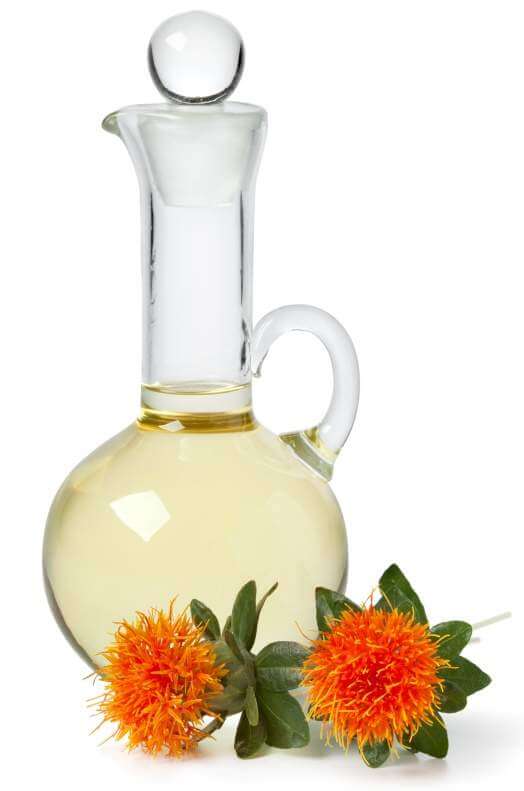Like other essential oils, safflower oil has many uses. It is commonly used in the kitchen when cooking, and the oil from safflower seeds has been cultivated for centuries. Is safflower oil good for you? It has many benefits, and learning what they are is going to motivate you to use safflower oil regularly.
If you look at a picture of a safflower, you’re going to think immediately of sunflowers. They don’t look identical by any means, but they resemble one another. That being said, the nutritional aspects of safflower oil are close to what you can expect from sunflower oil, but even with that in mind, many people are left wondering if CLA Safflower oil is a scam, or is it actually legit? Let’s find out below….
Safflower oil impacts just about every aspect of your health when it is used. That’s good to know, but of course you want the specifics. One of the benefits of the oil is that it helps to boost your immune system. Not only that, but it helps to fight off bacteria that might cause infections as well.
Have you heard of people using safflower oil for weight loss? It makes sense because it is a different type of healthy oil to use when cooking. You do have other choices for healthy oils, but it makes sense after discovering more about the benefits to use safflower oil to help you with your weight loss efforts.
Safflower oil can also be used topically on the skin. So it’s not just for cooking. You can use the oil on your skin to help fight acne and to keep those blackheads away. The main ingredient that is helpful in this regard is linoleic acid. Yet its also about the other vitamins and nutrients that safflower essential oil contains.
Every woman knows what menstrual cramps feel like. Safflower oil can help to relieve menstrual pain, and that benefit has everything to do with linoleic acid as well. It’s all about the regulation of prostaglandins. If that term is unfamiliar to you, talk with your doctor about menstrual cramps and what he or she says about natural remedies.
Are you diabetic? Whether you have diabetes or not, prevention is key as our bodies age. Everyone can benefit from omega 6 fatty acids that are found in safflower oil. They help to manage blood sugar levels. Some experts specifically mention the natural use of safflower oil to help in terms of diabetes prevention.
Since safflower oil has anti-inflammatory properties, it can help with joint pain. If you look at natural herbal remedies for joint pain, you’re going to find that safflower essential oil is quite popular. The anti-inflammatory properties aren’t just about helping patient with joint pain. They have other benefits, too.
 Another benefit of this essential oil is that it aids in respiratory health and helping to fight chest congestion. In this instance, safflower oil is actually used aromatically. So now you have three ways to use the oil. You can cook with it, use it topically and use it aromatically.
Another benefit of this essential oil is that it aids in respiratory health and helping to fight chest congestion. In this instance, safflower oil is actually used aromatically. So now you have three ways to use the oil. You can cook with it, use it topically and use it aromatically.
You have already been told about how you can use safflower oil topically on your skin. You can also use it topically on your hair. What does the oil do for your hair? Like many other essential oils, it moisturizes your hair. It can also be used to treat damaged hair, stimulate your scalp and promote new hair growth.
Another important benefit of safflower oil is that it work to promote a healthy heart. This is a big one because you have to think how often you use oils when cooking. Using the wrong oils works against you consistently. Using safflower oil on the other hand helps your heart thanks to the omega 6 fatty acids.
What you also need to do is look at the list of nutrients contained in safflower oil. It is quite long, and it includes tryptophan, vitamin B1, magnesium, vitamin B5 and more. Now, you’ve learned about the benefit, but what about any possible side effects? To fully answer the question about whether or not safflower oil is good or bad for you, the side effects must be considered.
First, it has been known to irritate people’s skin when used topically. That being said, you want to dilute any essential oils you use topically anyway. The side effect shouldn’t deter you from exploring your options, but you might want to consult a doctor.
That side effect is in reference to topical use of safflower oil. As for ingesting the oil, moderation is the key. In other words, you might want to cook with safflower oil sometimes, and use other healthy oils in moderation, too. What you don’t want to do is use an unhealthy oil to cook with.
You have the facts now, and you can decide how you want to use safflower oil. You can tell that the benefits far outweigh the side effects. That being said, you might as well try it out. Make it the next essential oil you use.
